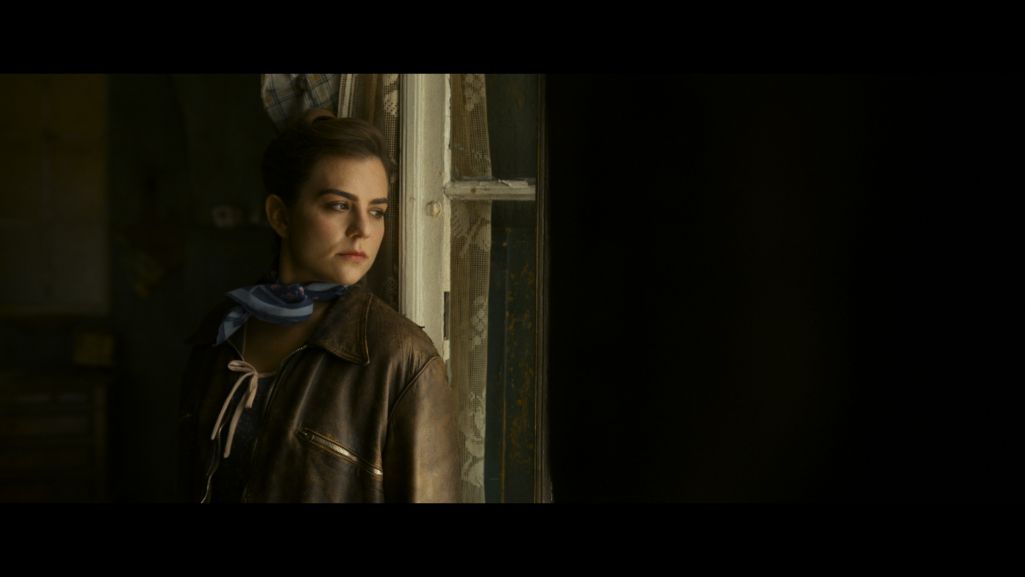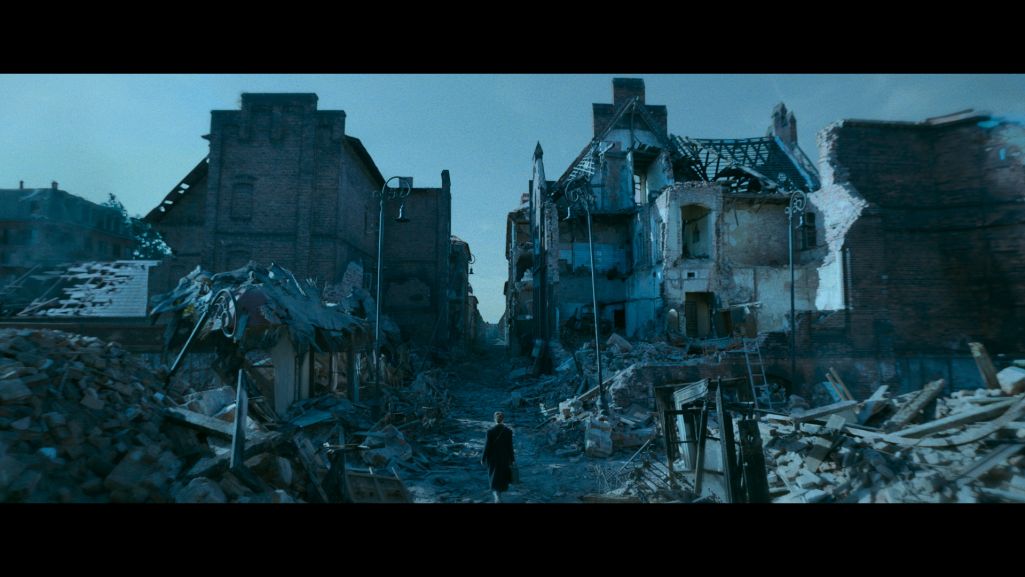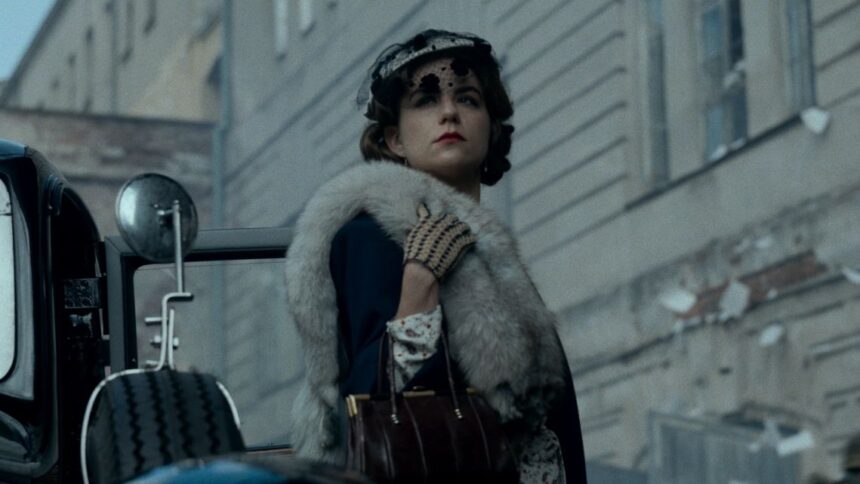Warsaw: SiltaNews – News Desk
Expectations are building ahead of tonight’s premiere of a wartime thriller inspired by the true story of Krystyna Skarbek – a legendary WWII secret agent now celebrated as ‘the Polish James Bond’. Promising a nuanced portrayal of the woman Winston Churchill once called his favorite spy, the fast-paced espionage drama, The Partisan, stars Morgane Polanski in the lead role, alongside British national treasure Malcolm McDowell as her enigmatic handler, Trench Coat.
While many believe that Bond creator Ian Fleming based the Casino Royale character of Vesper Lynd on the flamboyant Skarbek, those familiar with the Polish agent’s daring exploits argue she bore more resemblance to Bond himself, a view echoed by the film’s director, James Marquand. Yet despite these pertinent comparisons, Marquand deliberately avoided venturing into the realms of the far-fetched. “I’m fine with Bond – but that’s high-action,” he tells TVP World. “We’ve aimed for something more grounded in reality, where people are human and flawed.”


And flawed she was. “In peacetime she was a dysfunctional person,” says Marquand. “Before the war, she got into a lot of trouble – expelled from schools, lovers throwing themselves off bridges; all sorts of crazy things.” Seemingly always surrounded by chaos, the traits that made her a liability in peacetime became invaluable in war, with Skarbek’s instinct for adventure and drama making her not just effective, but exceptional.
“Whatever it was that made her a dysfunctional person later became one of her greatest strengths, and she did amazing things that others were incapable of,” says Marquand. “But she was very much of the moment—the perfect person for that period in time. It’s a powerful idea when you think about it, but also, ultimately, quite tragic,” he adds.
Uncovering the deeper aspects of her character was one of Marquand’s central goals. “I kept wondering whether she faced an internal dilemma – was she driven by a desire to help others, or by a craving for danger and risk? That question became a key part of what I wanted to explore,” he says.
Born into an aristocratic family in Warsaw in 1908, Skarbek was an expert skier, champion equestrian, and even a runner-up in the Miss Polonia beauty pageant. During the interwar years, she married a diplomat, and together the couple were relocated to Ethiopia before sailing for London following Germany’s invasion of Poland – it was there that Skarbek was recruited by British intelligence.


The war would come to define her. Operating under the name of Christine Granville, she was parachuted behind enemy lines multiple times, trekked across the Alps on foot, persuaded an entire German garrison to surrender using nothing but her charm, successfully feigned tuberculosis after being detained by the Gestapo, saved fellow agents from imminent execution, and smuggled back the first film evidence of Germany’s plans to invade the Soviet Union.
With so many remarkable adventures to reference, one of Marquand’s greatest challenges was distilling Skarbek’s extraordinary life into a two-hour film. “There’s enough to fit into a TV series,” he says. “And the more I researched, the more I realized that what truly fascinated me was who she actually was.”
This need to understand the deeper layers of Skarbek’s character became the project’s emotional compass, though Marquand emphasizes that his portrayal was shaped by personal interpretation. “I read everything that I could about her, including private letters and documents stored at the Imperial War Museum, and came away thinking she was quite a dark character,” he says.
“But that’s my take – some people will disagree with the way I’ve depicted her, but I felt the best way to do her justice was to make her as three-dimensional as possible. I didn’t want to just show a simplistic, patriotic-romantic hero, someone else can make that film if they want.”
Marquand’s approach has already earned praise, with preview screenings winning acclaim from several notable figures – including eminent British historian Roger Moorhouse, who described the film as “gripping and emotional,” and lauded it for “brilliantly combining historical drama with a compelling portrayal of human rebellion and resilience.”
For Marquand – who also wrote The Partisan – the film’s release promises to not just be a career high but also the realization of a long-held ambition. “I had a Polish grandmother who told me stories about her, so I always thought her story would make a great film,” he says. Co-produced by the Polish Film Institute, The Partisan features a strong Polish presence, both on and off screen, including the esteemed actress Agata Kulesza playing the role of Skarbek’s mother.

“A lot of the crew were also Polish,” says Marquand. “But whereas I thought this could present a challenge, it was actually fine – we found the language of film, so it turned out to be really fun.” So too, says Marquand, was filming in Poland. Though the second half of the film is set in France, Bystrzyca Kłodzka in Lower Silesia was picked as a substitute for the south of France.
“Transforming Bystrzyca Kłodzka into a wartime French town was fantastic,” says Marquand. “It was such a great location, and the people were absolutely lovely – so cooperative,” he adds. “We built a little fountain for the set, and they didn’t want to remove it at the end!” Marquand, however, singles out Morgane Polanski, the daughter of film-director Roman Polanski, as the film’s show stealing standout.
“I think she had the toughest job, as she’s in every scene,” he says. “People who don’t know the inner workings of film can’t imagine how hard that is, and we had a very hectic schedule, so for her it was a real feat of endurance – maybe not quite as superhuman as Krystyna Skarbek, but superhuman nonetheless!” Yet while the film begins with Skarbek’s first mission, and concludes with her last, in reality the spy’s story did not draw to such a neat conclusion.
Life after WWII was far from kind. Xan Fielding, a British agent whose life she had saved during the war, wrote of Skarbek: “After the physical hardship and mental strain she had suffered for six years in our service, she needed, probably more than any other agent we had employed, security for life.” “Yet a few weeks after the armistice she was dismissed with a month’s salary and left in Cairo to fend for herself.”
Skarbek was later naturalized as a British citizen in 1946 and awarded both the George Medal and the OBE for her wartime service. But this recognition did little to ease her struggles. In London, she worked as a telephone operator, salesgirl, waitress, and eventually as a cabin steward – it was aboard the ship MS Ruahine that she met Dennis George Muldowney, a fellow crew member who developed a dangerous obsession with her.


On June 15, 1952, Skarbek was stabbed to death by Muldowney at the Shelbourne Hotel in Earl’s Court, London. He was later hanged for the crime. Skarbek, meanwhile, faded into history – celebrated by some, but forgotten by most. The Partisan stands to finally redress that balance. The Partisan (titled Skarbek in Poland) hits cinema screens in Poland and the rest of the world on Friday.

